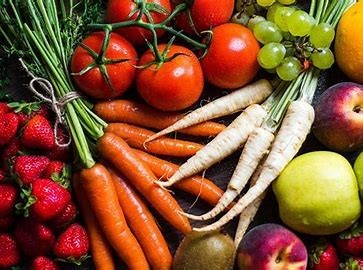Enjoy the Holiday Season, Without Weight Gain
The holiday season is a time for celebration, cheer and getting together with family and friends! This is also the time of the year associated with an overindulgence in food. A more sedentary lifestyle during these colder months, along with increased energy intake and decreased energy expenditure has been known to promote weight gain.
Most of us have heard the saying “holiday weight gain.” The infamous time between Halloween and the New Year, where a gain of 5 lbs. was thought to be inevitable.
So how much weight does the average American gain during the holiday season, and can we do anything to prevent it?
Research shows that the average weight gain during mid-November and mid-January is less than you think. Multiple studies have reported the average among adults during this time frame was about 0.5 kg or 1.1 lbs. However, the range in individual weight changes was large, with those already overweight and obese gaining more weight than those who are at a healthy weight to start the season. When the average gain across the year was also measured, holiday weight was the major contributor to annual excess weight gain.
In addition, unfortunately evidence shows that the weight you gain over the holidays tends to stay with you over time. A study funded by the National Institutes of Health found participants gained about one pound between Thanksgiving and New Year’s Day, and then kept that pound on for the rest of the year.
Even if your holiday weight gain is small, over time this can add up. If it’s cumulative, that could mean putting on 40 or 50 pounds over a lifetime!
So, what can you do to prevent this unwanted weight gain while still enjoying your yourself and your traditions?
Here are some evidence-based tips to maintain your weight as we enter this glorious season:
Be mindful of not only what you are eating, but also of portion size.
Depending on your traditions, common Thanksgiving meals include large amounts of turkey, potatoes, gravy, and stuffing etc., not to mention the desserts such as pies, cakes, cookies and more! Often, calorie-rich alcohol beverages and heavy appetizers are also served.
- Try to be cognizant of the amount of fat, sugar and calories are in what you eat and drink.
- Check nutrition labels when you can.
- Be mindful of the size of a serving. A portion of your favorite food may be much smaller than you’d expect.
Often, you can still enjoy your favorite foods in moderation.
Find ways to modify recipes.
 There are many creative ways to make substitutions in recipes. Examples of how you can modify recipes to help make them healthier include:
There are many creative ways to make substitutions in recipes. Examples of how you can modify recipes to help make them healthier include:
- Substitute mashed bananas or applesauce for butter or oil
- Choose egg whites instead of whole eggs
- Use low-fat whipped cream instead of full fat
- Experiment with fresh herbs and spices instead of salt to lower sodium intake.
If you’re looking to make meals healthier this holiday season and into the coming year, we also have tips for getting started with a whole foods plant-based diet.
Switch to a smaller plate.
Our plates are significantly larger than they used to be. About 50 years ago the average dinner plate was between 7-9 inches in diameter, compared with today’s dinner plate averaging 11-12 inches! Many of us fill our plates this time of year, only to then get another helping. Although there is conflicting evidence regarding whether a smaller plate leads to weight loss, the appearance of a full but smaller plate may be enough to satisfy you.
Eat slowly.
Eating quickly doesn’t allow the body time to recognize that it is full, consequently you may consume more calories before you reach the point of feeling satiated. Try putting your fork down between bites as a reminder to slow down.
Don’t fast then gorge.
 This is common tactic around the holidays, fast all day to “save” up and then splurge in the evening. However, by the time you’re ready to eat, you will be overly hungry. Chances are you’ll eat faster and consume more with this approach. It’s better to pace yourself throughout the day. Start with a light breakfast followed by a light lunch to keep yourself moderately satisfied. You want to have an appetite for dinner, but don’t want to be so hungry that you are set up to overeat.
This is common tactic around the holidays, fast all day to “save” up and then splurge in the evening. However, by the time you’re ready to eat, you will be overly hungry. Chances are you’ll eat faster and consume more with this approach. It’s better to pace yourself throughout the day. Start with a light breakfast followed by a light lunch to keep yourself moderately satisfied. You want to have an appetite for dinner, but don’t want to be so hungry that you are set up to overeat.
Be careful with calorically dense beverages.
Soda, eggnog and many alcoholic beverages are loaded with sugar and calories. Choose water or calorie-free drinks instead such seltzer with a splash of cranberry, lemon, or lime, or limit yourself to one serving of your favorite drink during a holiday party. There are always options for substitutions as well, such as lower calorie low fat eggnog and sugar free versions of hot chocolate.
Make time for exercise via new traditions.
Rather than sitting down in front of the TV after a holiday meal, add some exercise into your holiday routine.
Consider these ideas to keep your body moving:
- A short walk or bike ride around the neighborhood. Many communities have “turkey trots” on Thanksgiving Day.
- Stay active during the holidays by signing up for a workplace or community fitness event such as a race or walk.
Try to schedule and pre-plan the activity so you are more likely to follow through.
Get adequate sleep.
Holiday stress and the never ending “to-do” lists may lead to less sleep. Many studies have shown a link between lack of sleep and weight gain. Chronic lack of proper sleep can cause metabolic and hormonal alterations which can promote weight gain. Try to practice good sleep hygiene and get adequate sleep as often as possible.
Reduce stress.
We all know holiday demands can be stressful. Unfortunately, chronic stress can lead to increased levels of the hormone cortisol. When cortisol is chronically elevated it may cause weight gain. Think of ways ahead of time (such as scheduled meditation, yoga, or time alone) to combat stress.
Use the Buddy System.
Many people find that it is helpful when they have partner who has similar weight goals, as this person can keep them motivated and accountable over the holidays. Check in with friends, family, and colleagues to find someone who would make a good fit. Even consider virtual options for support. Remember, even if you do overindulge you can get back on track the following day.
I hope some of these tips will assist you as we enter the holiday season. The idea is to enjoy yourself and not feel deprived, while at the same time finding ways to make small changes that can add up over time to a healthier you!

